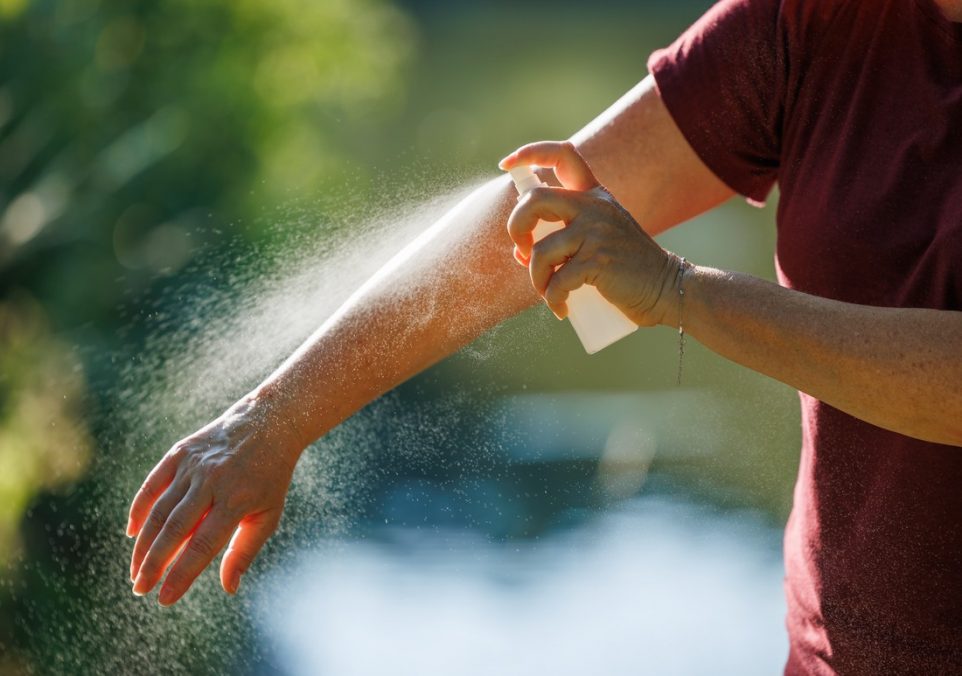Does Lemongrass Repel Mosquitoes? 5 Ingredients to Look for in Mosquito Repellent

With the ever-present threat of mosquito-borne diseases, the quest for effective mosquito repellents is a topic of considerable importance and interest. Mosquitoes are more than just a nuisance—their bites can transmit serious diseases such as malaria, dengue, Zika, and West Nile virus. Therefore, finding a reliable method to protect oneself from these pests is a public health priority. Many people are turning to natural solutions in the hope of avoiding the chemicals found in some commercial repellents, leading to a surge in interest in plant-based ingredients that can repel mosquitoes.
Lemongrass, with its strong citrus scent, is often mentioned among these natural alternatives. However, it is crucial to examine the science behind such claims to determine their efficacy. In this discussion, we will explore not only lemongrass but also five other natural ingredients that are regularly suggested for their mosquito-repelling properties. Understanding which compounds are genuinely effective can aid in making informed decisions when selecting a mosquito repellent that is both safe and effective.
Mosquitoes and Attraction
Mosquitoes are naturally drawn to carbon dioxide, body heat, and certain chemicals found in human sweat, such as lactic acid. They are also attracted to dark colors and movement. These factors can make some individuals more susceptible to bites than others.
Plant-based mosquito repellents work by masking the scents that attract mosquitoes or by actively repelling them with odors they find unpleasant. A common misconception is that all-natural ingredients are inherently safe and effective as repellents. However, the effectiveness of any mosquito repellent, natural or synthetic, depends on its ability to interfere with mosquitoes’ sensory mechanisms.
When evaluating the efficacy of lemongrass or any other natural ingredient, it’s imperative to look at the presence of certain compounds known for their repelling properties. For instance, lemongrass contains citronella oil, which is widely recognized for its mosquito-repellent qualities. Furthermore, the concentration and delivery method of the ingredient plays a crucial role in its overall effectiveness. A low concentration of an active ingredient or improper application can render the mosquito repellent less effective or entirely ineffective.
When considering lemongrass-based repellents, look for products that specify the concentration of the oil and provide instructions for effective application. You should apply repellents containing lemongrass to exposed skin and clothing as directed to create a barrier against mosquitoes. However, it is crucial to reapply the product at regular intervals, as the natural oils can dissipate more quickly than synthetic repellents.
The 5 Key Mosquito Repellent Ingredients
DEET
While not a natural ingredient, DEET is a highly effective chemical repellent that has been extensively studied and used worldwide. It’s known for its ability to repel a wide range of mosquito species and offers long-lasting protection. When selecting a mosquito repellent, a product containing DEET can provide a reliable defense, but those preferring natural options may want to consider the following ingredients.
Citronella
Citronella oil, extracted from different species of lemongrass, is well-known for its mosquito-repelling properties. It works by masking the scents that attract mosquitoes, such as carbon dioxide and lactic acid. Look for repellents that contain a high percentage of citronella oil to ensure effectiveness.
Oil of Lemon Eucalyptus
Derived from the leaves of the eucalyptus citriodora tree, OLE contains the active ingredient p-menthane-3,8-diol (PMD). It can provide protection comparable to low concentrations of DEET and is a good natural alternative for those seeking protection against mosquitoes.
Picaridin
Although synthetically produced, picaridin is closely modeled after a compound in the black pepper plant. It is odorless, less likely to cause skin irritation, and does not damage plastics or fabrics. Picaridin is a suitable choice for those wanting an effective repellent without the strong smell associated with other ingredients.
Geraniol
This alcohol-based compound, found in geranium oil, has demonstrated repellent properties against a variety of mosquito species. Products that contain geraniol may offer a natural and pleasant-smelling alternative to traditional mosquito repellents.
Natural Vs Chemical Mosquito Repellents: What’s Better?
When weighing the options between natural and chemical mosquito repellents, it’s important to consider both efficacy and personal preference. Natural repellents, such as those containing lemongrass oil, citronella, or oil of lemon eucalyptus, work by emitting smells that are unattractive to mosquitoes. These natural options are ideal for those looking to avoid synthetic chemicals and are often perceived as safer, particularly for children, pregnant women, and individuals with sensitive skin.
On the other hand, chemical repellents like DEET and picaridin have been scientifically proven to provide long-lasting protection against mosquitoes. These ingredients are rigorously tested and approved by regulatory agencies such as the U.S. Environmental Protection Agency (EPA) for their safety and effectiveness. While some may have reservations about using synthetic chemicals, it’s important to note that when used according to the label instructions, these repellents have a well-established safety record.
Your Adventure, Our Experience
At TheCampingList, our dedication to authenticity and reliability stems from our own adventures in the great outdoors. Our team, comprised of seasoned experts in hiking, camping, climbing, cycling, fishing, and hunting, rigorously tests every product and shares insights drawn from real experiences. This hands-on approach ensures our reviews and guides meet the highest standards of durability, functionality, and comfort. Moreover, our platform thrives on the rich contributions and feedback from our vibrant community of enthusiasts. We pride ourselves on delivering unbiased, educational content that empowers and informs your outdoor pursuits. Trust in TheCampingList for genuine advice and support, where we're all about enriching your journey, every step of the way.